As the UK government has instructed the nation to stay at home and only venture out for specific, essential reasons in light of the Coronavirus (Covid-19) situation, many of us are being encouraged to park our cars if we can. Some owners of Toyota hybrids might be wondering what will happen to their car during long periods without use, particularly when it comes to the level of charge in the batteries.
The reassuring news is that no difficult car maintenance is necessary. However, there are some tips that, if followed, can help ensure your Toyota remains in tip-top condition during an extended layoff.
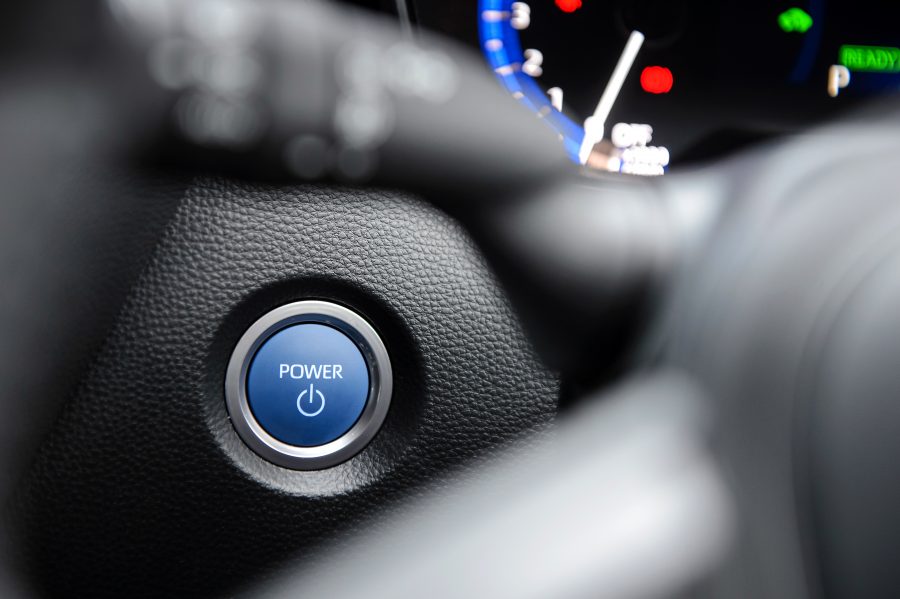
To recap, Toyota hybrids generally contain two batteries: a 12-volt battery (which powers systems such as the headlamps and audio) and a high-voltage hybrid system battery (which supplies the power to start the combustion engine and drive the electric motors).
The simplest way to maintain charge in both of these batteries is to simply go through the normal start procedure: press the ‘Start’ button with your foot on the brake and ensure the ‘Ready’ light is illuminated on the dashboard (you don’t have to keep your foot on the brake thereafter, but ensure your vehicle’s transmission is in ‘Park’ and the parking brake is engaged).
We recommend you put the car in ‘Ready’ mode for about 60 minutes before switching it off again and repeat the process at least once a week, providing you can carry out this procedure while adhering to the government’s advice regarding social distancing and Coronavirus (Covid-19). Please do not leave your car unattended when it is in ‘Ready’ mode.
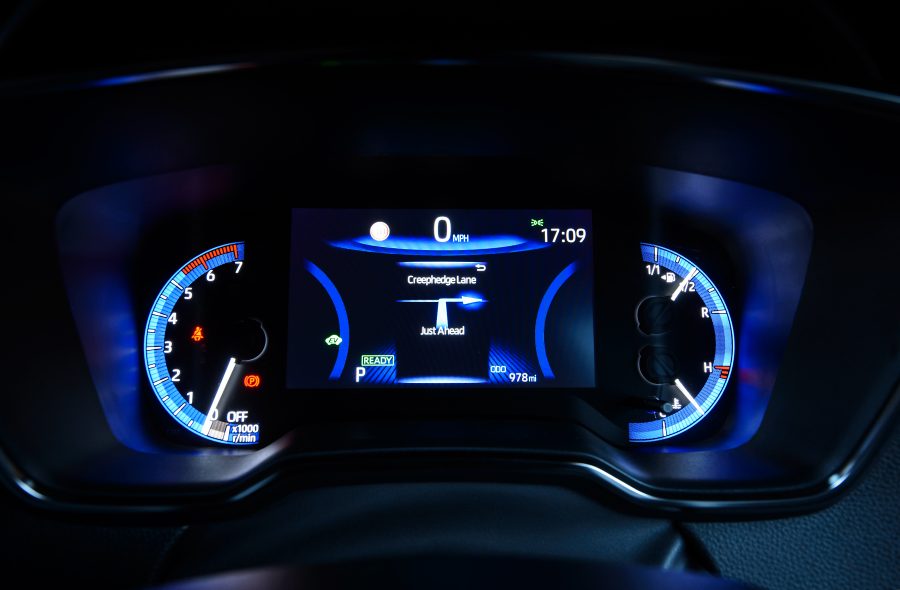
During the time that that car is in ‘Ready’ mode, you may hear and feel the internal combustion engine kick in; this is a normal part of the self-charging process. You might be tempted to switch on the radio to pass the time, or turn on other systems, but bear in mind these will consume small amounts of electrical power so it is preferable to leave them off.
Ensure the handbrake is on; there’s no need to go for a drive, although we must stress that this procedure should take place in a well-ventilated area – something to consider if you park your vehicle in a garage.
What if my Toyota isn’t a hybrid?
Our petrol and diesel cars only have a 12-volt battery, which provides the power to start the engine in addition to the other systems mentioned above. Regular start-up of the vehicle on conventional petrol and diesel engines needs approximately 20 minutes of running to put back into the battery what you remove on start up, so to maintain this battery we would suggest 60 minutes of running at least once a week.
Is there anything else I need to do?
Whether you own a hybrid or a Toyota equipped solely with an internal combustion engine, there are a few other easy car maintenance points that can ensure your Toyota hybrid remains healthy and happy during an enforced hibernation. Again, please adhere to the latest government advice regarding social distancing.
- Check the tyre pressures are fully inflated to the recommended level and top-up if necessary. It can be a good idea to repeat this process when you first drive your car after a long period of inactivity.
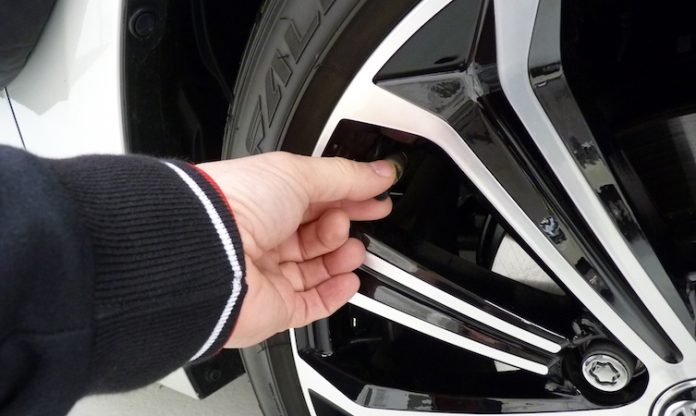
- Clean the car thoroughly inside and out. If you are storing your car in a garage, make sure the vehicle is completely dry before you put it away.
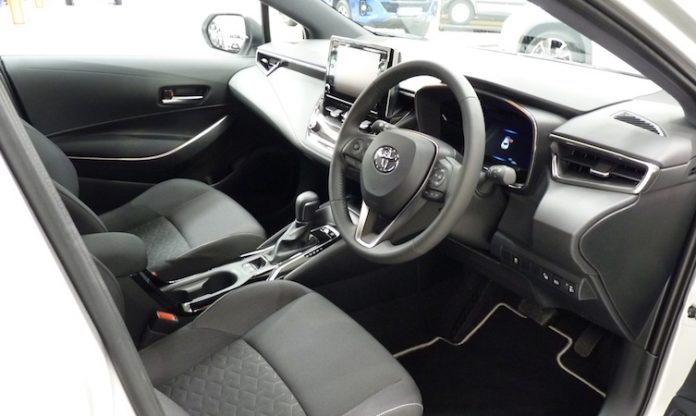
- If you do plan to store your car in a garage, ensure the chosen storage area offers plenty of ventilation. If the space is secure, you could consider opening one of the car’s windows a small way to ventilate the interior. If you do this, you might have to change your car alarm’s setting to prevent it setting off the intrusion sensor – please consult your car’s manual for more information.
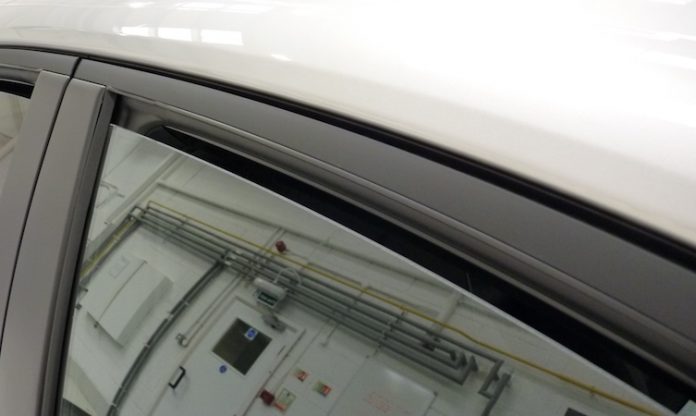
- It can be beneficial to leave the vehicle with the parking brake disengaged to prevent the brakes from binding, but only do this if you are certain the car is on level terrain and isn’t going to move. Ensure the transmission is set to ‘P’ for park and place wedges or chocks, if you have them, under the wheels.
- If you have a 12V battery trickle charger, or a solar panel charger, and are confident using them, then these are a good option to keep the battery fully charged while the vehicle is stationary for a period of time.
- If your vehicle is equipped with smart entry and start but the system isn’t operated for a long time, a battery-saving function will automatically be activated to prevent the electronic key battery and the 12-volt battery from being discharged. Battery depletion in the key is minimised by stopping the electronic key from receiving radio waves. On many models equipped with this system, it is possible to manually put the key into battery-saving mode, so please consult your car’s handbook for more information. If you aren’t planning to drive your car for a long time, consider putting the smart key in a safe place and not carrying it around with you in your pocket. This will prevent the car from ‘waking up’ unnecessarily should you happen to walk near it in your garage or driveway.
- If the vehicle will be kept on private property (such as inside a garage) for the duration of its storage, you could consider applying for a Statutory Off Road Notification (SORN). This informs the DVLA that the car is off the road and you will receive a refund of any remaining full months of tax. However, you won’t be able to drive your car legally until you tax it again, so it is only advisable if you are positive you won’t use your car for a long time. You can read more information about how to SORN your car here.
Read more Toyota GB’s latest statement on the Coronavirus (Covid-19) situation
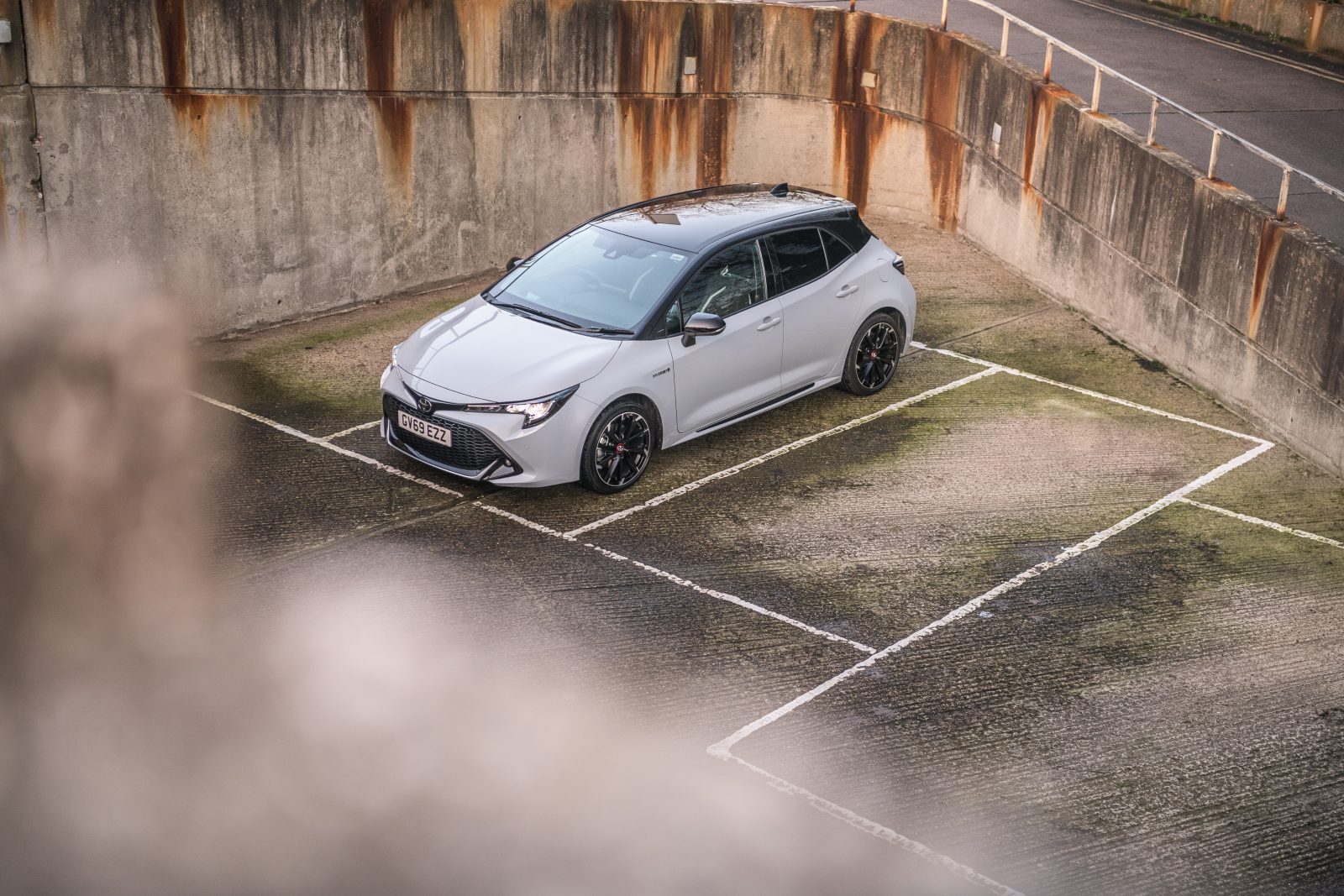

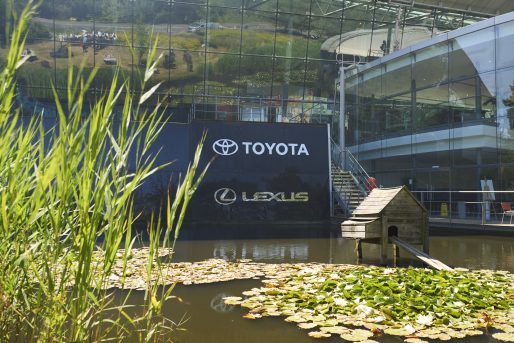
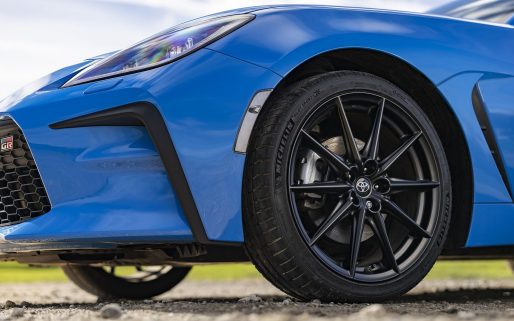
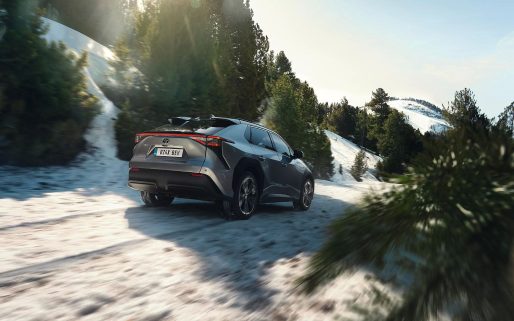
Only had my yaris cross hybrid 13months currently in garage being charged been told must drive more not changing battery also not told this problem when car was ordered even though they new many miles we drive Toyota dealers don’t care they’ve had there money now they blame you
Hi, thanks for getting in touch.
We are very sorry to hear you are experiencing this and completely understand your frustration.
We would recommend contacting our Customer Relations team to discuss this further.
The team can be found here: https://www.toyota.co.uk/help-centre#/
Please let us know if we can assist with any other problems or queries.
Thanks.
Same here , I use my Toyota Yaris hybrid for short journeys , but the battery completely drains in a matter of days? I have advised the dealer , use the recommended solar trickle charger- but it seems. Ow I need to get a new battery , jump starter?
When I bought from new I was already a low mileage driver & bought this one to be economical, eco friendly which it won’t be if I have to drive it more just to charge it?
Does it need a recall?
I’ve just had the same problem with my Toyota Yaris hybrid luckily it is still under warranty.i had to get someone to jumpstart my car to be able to get it to toyota.they fully charged the battery and said I should use it more I only do about 100 to 120 miles a month or buy a solar charger to fit to the battery.what makes it awkward is having the batteries under the seat.
2021 Toyota Yaris from Dealer in West Sussex, owned for around two months, have had to jump start it three times so far. Also now brought Noko jump pack and plan on fitting a permanent leads to auxiliary battery inside the car so it can be jumped as anticipating this to be an extremely frequent occurrence. Will Toyota ever issue a recall for this issue? I think it’s a great car but has this (crucial) flaw, to the point I would not recommend this car to anyone, no matter how great it is to drive/own.
As part of the buying discussion with the dealer sales rep, we explained the car would be a second car doing around 3,000 miles a year being driven mainly to golf club and other local journeys as main vehicle a full EV costing a lot less per mile in fuel. He said that was ideal as would get best fuel consumption mainly using hybrid battery. We also explained car would not be garaged but parked on open drive. We’ve called the AA out once and after investing in a battery pack, jump started half a dozen times. Went on holiday for six weeks and then two weeks and battery dead on return. Wife not happy to jump charge cold dark mornings so complained to dealer. Dealer said we needed to buy £82 solar charger or run car for 60 mins on drive! We’ve never had this sort of problem in fifty years of car ownership and feel vehicle not fit for purpose as bought it to drive and can’t do so! Dealer had car for overnight deep charge and gave it all clear but now wants it for 48 hours, which is really inconvenient. Looks like we need to let it fail again, call out AA and get it recovered to dealer so we get 48 hour loan car while dealer investigates drainage problem? Anyone else had this sort of issue? Is the car fit for purpose?
I am not sure these cars are fit for purpose . I purchased my hybrid Yaris 3 months ago. It was 3 years old with only 16k mileage. I drive it most days mainly 13 miles to the golf club and back so have driven 2500 miles in 3 months. On Thursday I defrosted my car to go and play golf. Battery flat so called the AA. He charged it but said I needed to take it to the dealer. All dealership did a battery test and said it was ok. They recommended I buy a trickle charger to keep the battery fully charged. Now I thought I had purchased a self charging hybrid but obviously not. My fear now is when I park my car when I go on holiday will the battery be flat when I return. It was suggested I triple charge before I drive to the park and ride and SHOULD be fine. Now like you I have purchased cars over 50 years and have never had this problem even with old bangers bought years ago. I am 78 years old and wanted a reliable car. I really to not want to have to worry whether my car will start or not. This car cannot be fit for purpose as it is a self charging hybrid but needs trickle charging. I may have to cut my loses as I cannot have an unreliable car. I thought I was helping the environment buying a hybrid but having to keep driving it is not helping the environment.
Had same problem. Fine for a year of odd use maybe 1 or 2 times a week, sometimes more, but then battery dead. Car was due a service so told them about this & check battery. Was told it’s because I don’t do enough miles & suggested a solar panel charger. However noticed on invoice that new battery had been fitted. Few weeks in & battery flat again. AA came again & told me solar charger waste of time. Was bought a charging pack for Christmas but leads are too short to reach points in engine bay. It’s a faf to connect the jump start or charger under the back seat. So now I’m resigned myself to leave it running for 1hr but not ideal. Never had this problem with any of my other Toyota’s & was not informed about the 12v battery situation when sold to me.
Same thing here wishing I hadn’t bought it as much as it’s lovely to drive.
I had a toyota Yaris for over 12 years and swapped for a Yaris hybrid in 2022. Told dealer I am retired and won’t be driving much except for shopping etc so roughly 2000 or less annual miles . Was told car was good for my purpose as local small journey will be electric and save fuel and good for the environment
Now I find the car is not fit for purpose as I had called AA three times since I owned it. AA engineer told me the battery was faulty when he tested it. Saying it’s not charging as it should be. Took it to my dealer to check and they kept saying battery fine and excuse was run the car once a week on the motorway. What??? Does he know how my fuel cost? Why should I be doing unnecessary journey and it’s also polluting the environment? Other options is to run the car for 60mins weekly. In cold weather Toyota expect me to sit in my car for 60mins. What about the law saying it’s illegal to run a car on idle.
Toyota should be recalling all hybrid call and do something with that silly 12volt battery just to start the car and for some minor stuff. I do think there is a battery leak somewhere to cause the battery drain when not in use or Toyota knew a fault in itself but still market the hybrid cars. They should instead think of away that does not need that small battery to start the car but instead using a larger battery that can last longer. I can’t park my car at the airport or cruise terminal car park if I go away for 2 weeks. Knowing the car won’t be able to start when I return. What’s the point owning a supposedly environmentally friendly and fuel economical car that is not fit for its purpose.
The problem is also when the dealers showed me the report of the battery health it said it was 11.8 volt when I drop off and after overnight it went to 13.8. Anything below 11.they will replace.
Then why did he not give me the paper report of my battery. Is Toyota dealership conning me the results as I can vaguely recollect that was the same data he said he tested a previous customer with similar issue. Or is it what Toyota telling their dealership to fob customers off their concern not to replace faulty battery.
My dealership never fobs me off.They are as frustrated as I am with my Toyota hybrid which has been back four times for battery non charging problems.WHEN WILL TOYOTA LISTEN?
I cried yesterday when the car battery failed yet again.Rang the lease people who said the usual guff that You’re not driving it enough…I’m 79 and don’t drive on motorways in the Winter!To get out of the lease will be £2,500 for a car that’s not fit for purpose.
Sadly joined the mass ranks of disgruntled Toyota hybrid owners. 21 plate Yarris failed again with discharged 12v battery. Fault indicated as “low brake pressure” Bit worrying for a fly by wire braking system? Probably not doing enough miles! The AA man showed me what to do last time so bought a modern charger. Only 9.3 volts at start of charge. We need a reliable car so will not be buying another Toyota.
19th January 2024
I have the same problem as other Toyota Yaris Hybrid owners. I’ll be 80 years old next birthday and my car is now 2 years old and I’ve fallen out of love with it, because the battery goes flat too often. I’m told to drive it more! But I want to use as little petrol as possible. I only do a few long journeys a year and mostly just drive locally 2 or 3 times a week. It happened again today, just when I wanted to give a lift to a friend. My car lives outside the block of flats that I live in. I’d appreciate knowing what needs doing.
I don’t think toyota care they know there is a problem that’s why they tell people to buy a trickle charger the issue here is knot being told by dealer at point of sale 4 days car in garage and they couldn’t get it fully charged toyota say go back to your dealer I did salesman said he would get the manager to give me a call that was before Christmas herd nothing looks like another Japanese company telling porkies
4 years on and nothing has changed despite lockdown being lifted.
Log on to the Toyota owners forum and you will see hundreds of posts from hybrid owners complaining about 12 volt flat battery issues.
You suggest contacting Toyota support—-what is the point as I will add to the endless list.
Does anyone from Toyota react to situation ? If not is the next step to refer these complaints to the ombudsman.This should not be necessary if anyone in a position of authority took the trouble to read these complaints and find a solution !
I suspect the solution will involve a large cost to Toyota and therefore s unlikely to happen so I will do what others are proposing and find a non Toyota car.
Note .this is my 3rd and last Toyota as all have the same battery problem.
Very disappointed.
.